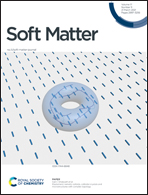Complex fluids in animal survival strategies
Abstract
Animals have evolved distinctive survival strategies in response to constant selective pressure. In this review, we highlight how animals exploit flow phenomena by manipulating their habitat (exogenous) or by secreting (endogenous) complex fluids. Ubiquitous endogenous complex fluids such as mucus demonstrate rheological versatility and are therefore involved in many animal behavioral traits ranging from sexual reproduction to protection against predators. Exogenous complex fluids such as sand can be used either for movement or for predation. In all cases, time-dependent rheological properties of complex fluids are decisive for the fate of the biological behavior and vice versa. To exploit these rheological properties, it is essential that the animal is able to sense the rheology of their surrounding complex fluids in a timely fashion. As timing is key in nature, such rheological materials often have clearly defined action windows matching the time frame of their direct biological behavior. As many rheological properties of these biological materials remain poorly studied, we demonstrate with this review that rheology and material science might provide an interesting quantitative approach to study these biological materials in particular in context towards ethology and bio-mimicking material design.



 Please wait while we load your content...
Please wait while we load your content...